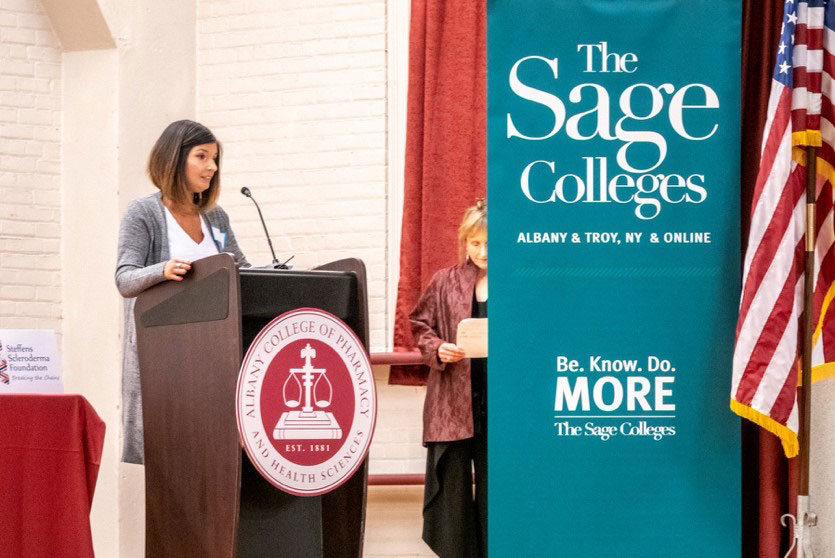Session Information
Date: Saturday, November 12, 2022
Title: Patient Perspectives
Session Type: Patient Perspectives
Session Time: 5:00PM-6:00PM
Background/Purpose: In 2001 I started to experience forearm, elbow, and wrist pain. My fingers were constantly swollen, and sensitive. After 6 months of living in pain and stiffness, I sought out help. I was then diagnosed with Systemic Diffuse Scleroderma. I developed Interstitial Lung disease, hypertension and heart complications almost immediately. My skin became hard and tight. My hands contracted inward causing fingertip ulcerations which led to self-amputations. My experience with doctors, more specifically specialists, was extremely limited. Coping with a disease that changes your entire life in the blink of an eye is difficult. The worst part was trying to find care.
Intervention: In 2016, I was asked by The Ann Steffens Scleroderma Foundation to participate in their Interprofessional Educational Event (IPE). The event was to introduce academic clinician students of various disciplines to Scleroderma by using patients as educators. Looking back, I realized the program they implemented was the concept I had been working to put in place. A structured care team willing to work together to gather information collectively and treat scleroderma’s symptoms, complications, and disease processes collaboratively. This new way of care became a game-changer for me allowing for earlier diagnosis, more effective and complete care, leading to an enhanced quality of life. As a result, my confidence increased allowing me to take an active role alongside multi-disciplined specialists. Whether it was a Rheumatologist, Cardiologist, Pulmonologist, etc., I was confident in a collaborative approach.
Maintenance: Disease-specific care is organized, attentive, and maintained through strong communication and active listening, along with the patient’s perspective and input. In 2019 I had a severe cardiac event and ended up needing an Implantable cardioverter defibrillator (ICD). This decision led to forming a team of specialty Surgeons and Anesthesiologists to handle unfamiliar skin, breathing capacity issues and difficulty with intubation. As time passed my symptoms were monitored closely by highly trained Scleroderma professionals. They provided continual communication through multi-doctor assessments offering a keen sense of security. As a result, I had complete confidence in my team, as I was an active participant.
Quality of Life: It took me five years to find a Scleroderma collaborative care team. Once I did, it felt like coming home and it changed the trajectory of my disease. Before that I felt lost and out of control, like my disease was overtaking my body. My care team allowed me to speak openly about my experiences. They gave me precise, structured, and highly monitored care which offered me a better understanding of my disease process. I learned to pay attention to my symptoms, however big or small. When you are diagnosed with scleroderma, you’re never really free from it. Medication doesn’t make it disappear. Finding my care team gave me hope that there is a way to gain back the life that scleroderma took from me. My journey albeit 21 years later is still in the making because of the collaborative care team approach.
To cite this abstract in AMA style:
Gietzen A, Bowen H. The Journey to Collaborative Care and Patient-Centric Educational Opportunities for a Scleroderma Patient [abstract]. Arthritis Rheumatol. 2022; 74 (suppl 9). https://acrabstracts.org/abstract/the-journey-to-collaborative-care-and-patient-centric-educational-opportunities-for-a-scleroderma-patient/. Accessed .« Back to ACR Convergence 2022
ACR Meeting Abstracts - https://acrabstracts.org/abstract/the-journey-to-collaborative-care-and-patient-centric-educational-opportunities-for-a-scleroderma-patient/

